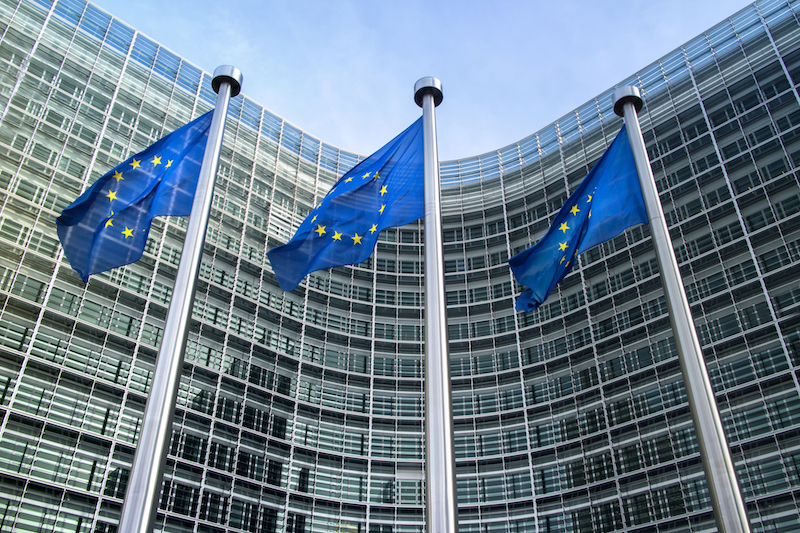
An audit report criticizes the Single Resolution Mechanism and proposes improvements for the EU banking union.
Even with Brexit on the horizon, the European Union (EU) has continued to work towards a unified Europe. One key aspect of the European project, made all the more crucial by the trauma of the 2008 financial crisis, has been the creation of a banking union.
But that banking union continues to struggle, according to a 2017 audit report. The report recommends strengthening the EU banking institution responsible for addressing bank failures throughout Europe—the Single Resolution Board (SRB).
As part of the creation of the banking union, the EU centralized bank regulation under the European Central Bank (ECB) and designed a banking supervision system that could handle the day-to-day regulation of the 119 “significant” EU banks and assist member state regulators in supervising “less significant” banks.
The introduction of this system was followed a year later, in 2014, by another pillar of EU bank regulation: the Single Resolution Mechanism. The Single Resolution Mechanism, through the Board, assumed primary responsibility for dealing with the failure of any of the banks within its supervisory system—in bank regulation parlance, resolving those banks.
In the past year, the EU’s audit agency, the European Court of Auditors, released a report marking the progress of the Single Resolution Mechanism. In light of the massive role the Single Resolution Mechanism is meant to fill, the auditors’ conclusions were dispiriting. Although the auditors tempered their conclusion by recognizing the growing pains that the Single Resolution Mechanism and SRB continue to experience, the auditors found that the resolution mechanism and Board have fallen dramatically short of their goals.
The success of the Single Resolution Mechanism—and, concomitantly, the Board—is essential, if only because the banks it regulates hold approximately 80 percent of the EU’s banking assets and the 28 EU member states combine to be one of the world’s largest economies. The significant banks overseen directly by the European Central Bank—a determination based on the bank’s size and its interconnectedness and importance to the national or Europe-wide economy—include global giants like France’s BNP Paribas, Spain’s Banco Santander, and Germany’s Deutsche Bank.
The auditors levied a number of criticisms against the Single Resolution Mechanism and SRB. The report’s authors wrote that “the ECB’s operational framework for crisis management has some flaws,” and that “there are some signs of inefficient implementation.” The auditors’ report includes a litany of examples of those flaws, such as national bank resolution agencies that lack clearly defined responsibilities. Even more troublingly, the SRB appeared not to have a framework for actually determining whether a bank was indeed failing.
The issues plaguing the European Central Bank’s crisis response procedures go beyond academic concern. The Bank has faced harsh criticism for how it handled several recent bank failures. For example, in 2016, the ECB endorsed a multi-billion-euro investment by the Italian government in two troubled Italian banks, Veneto Banca SpA and Banca Popolare di Vicenza SpA. The investment did not solve the banks’ problems and the two troubled lenders failed, costing Italian taxpayers as much as 17 billion euros. As Nicolas Veron of the European think tank Bruegel has asked, with the weaknesses of the SRB in mind, might it be the case that the Bank was reluctant to put the Board into action?
Yet, the Board’s recent remedial measures may indicate a more promising future. The auditors’ report includes a response from the SRB noting that it has already resolved a number of the issues identified in the report. For example, it has dramatically stepped up hiring, with approximately 160 new staffers joining the Board in 2017 and early 2018. Beyond that, the Board stated that it had clarified the division of responsibilities between itself and national regulators. Veron found the tone of the SRB’s response encouraging. As he put it, the response did not indicate a “siege mentality.” Rather, it exemplified the “effective accountability mechanisms” present in the EU.
Even with the Bank’s missteps in handling the two Italian bank failures and the other flaws noted in the auditors’ report, the resolution mechanism has shown encouraging signs that it can pass major tests. The SRB’s shepherding of Spain’s fifth largest bank, Banco Popular, through its resolution and sale to Banco Santander received generally positive reviews. In the span of two days, the SRB declared Banco Popular “failing or likely to fail” and sold the bank’s assets to Santander for a nominal price. Perhaps most importantly, all of Banco Popular’s depositors and Spanish taxpayers did not remain responsible for any costs.
Still a very new organization, the SRB has yet to face a system-wide challenge like the 2008 financial crisis. As such, it is too early to make a final judgment on the success or failure of the EU’s bank resolution plans, but the recent EU audit makes clear the enormity of the task before the Board.



